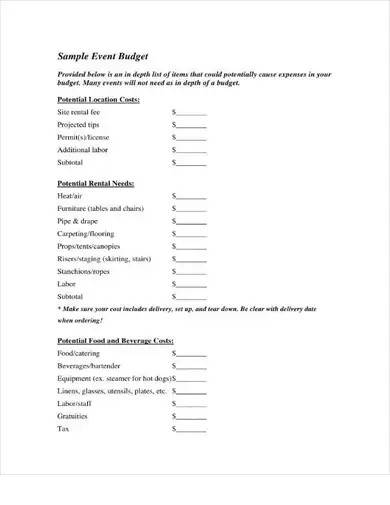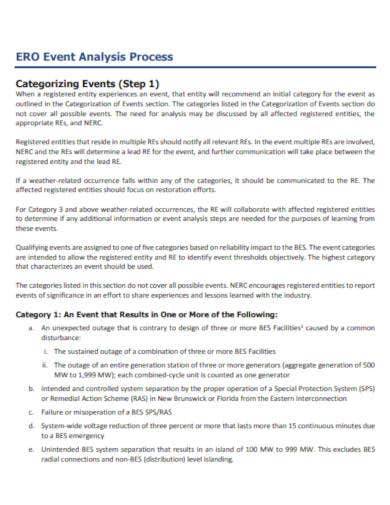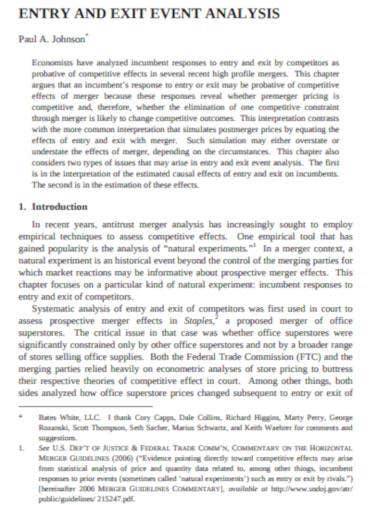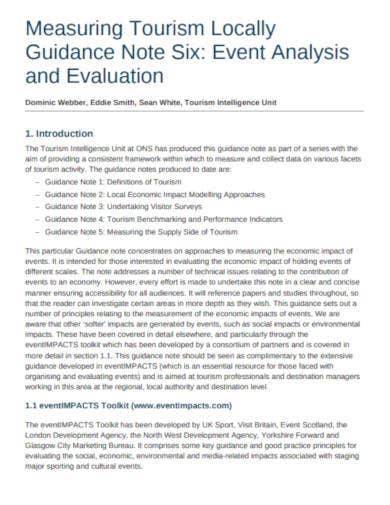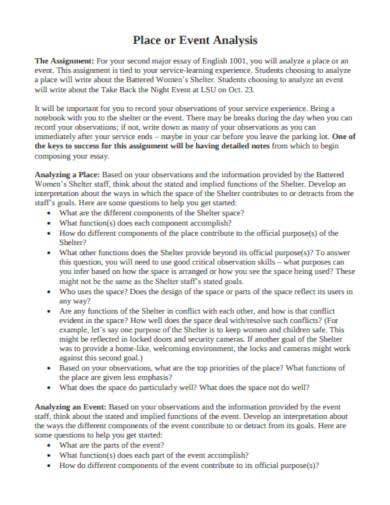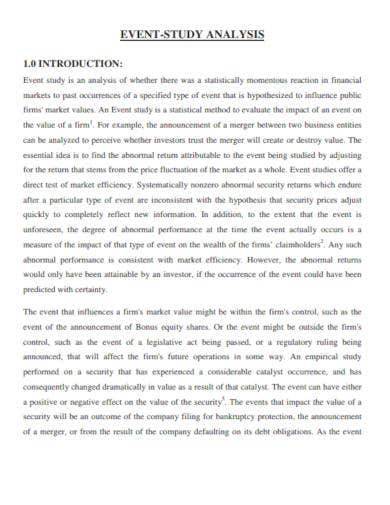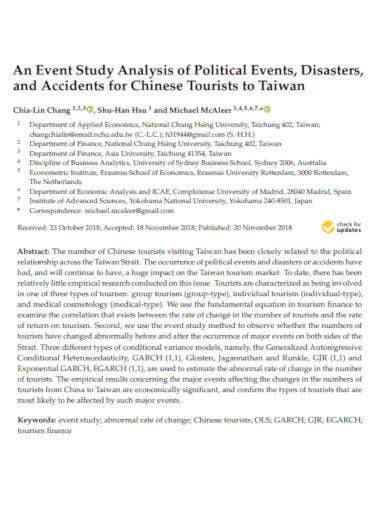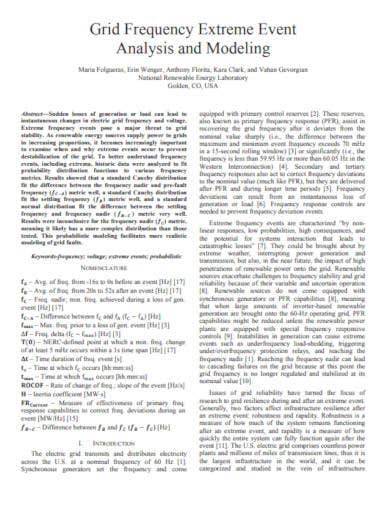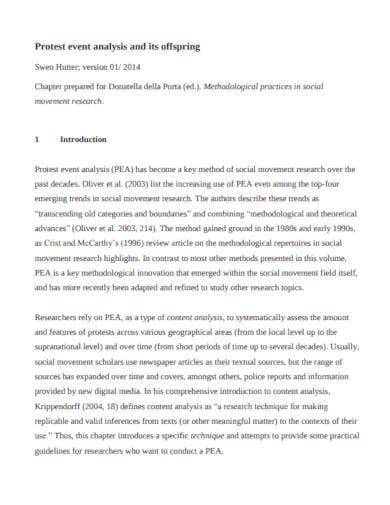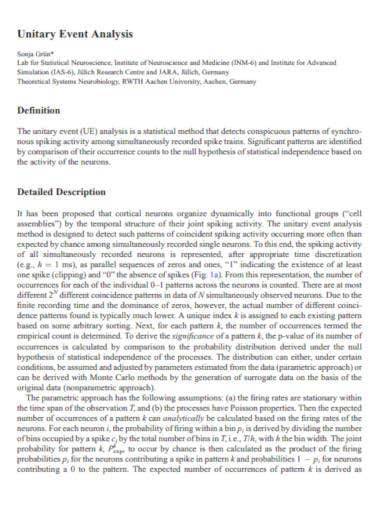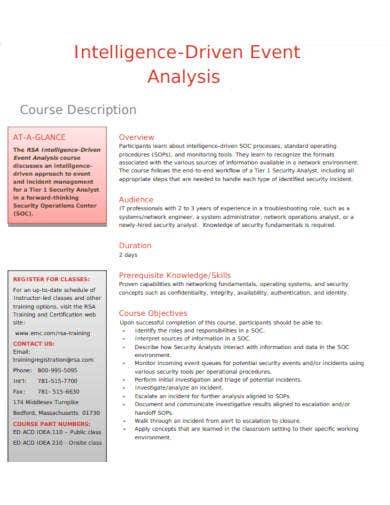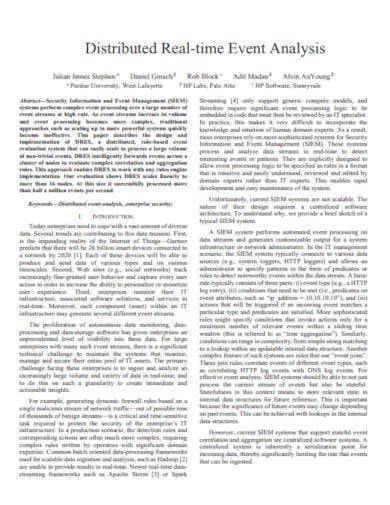Selecting what metrics to search for and comprehending what success looks like for each event means that marketers and planners can activate data to work for them. Being one of the essential tools in various business industries, an event analysis significantly proves the effectiveness of a meeting and events program, and links events to organizational success. Do you need to write an intensive analysis report for a concert, movie premiere, international event, business conference, or any kinds of events that will be assigned to you? Working on a current event analysis report can be stressful and challenging. Don’t fret because in this article, we have some downloadable event analysis samples to guide you. Keep on reading!
FREE 13+ Event Analysis Samples
1. Event Cost Analysis Template
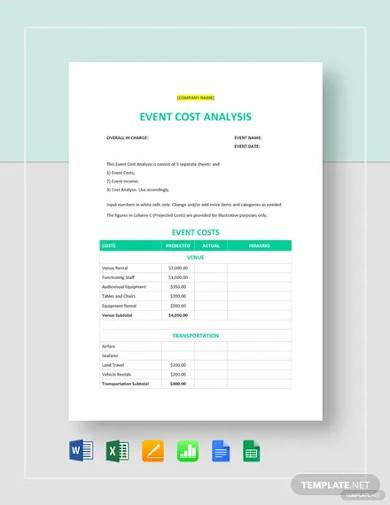
2. Events Management Swot Analysis Template
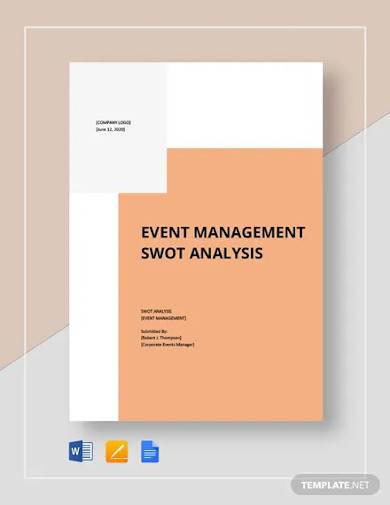
3. Sample Event Budget Analysis
4. Event Analysis Process Template
5. Entry and Exit Event Analysis
6. Event Analysis and Evaluation Template
7. Place or Event Analysis Sample
8. Event Study Analysis Template
9. Sample Event Study Analysis Template
10. Sample Event Analysis Format
11. Sample Protest Event Analysis
12. Sample Unitary Event Analysis
13. Driven Event Analysis Template
14. Real Time Event Analysis Sample
What is Event Analysis?
An event analysis is a comprehensive assessment report of one’s careful examination and detailed interpretation of his or her understanding about a specific event that takes place. Having a well-written analysis report that clearly explains what happened, how it happened, and why it happened is valuable for the organization or company, and the target audience of the event. It is important to collect important data and write the highlighted parts of the event, crucial in providing satisfaction, in identifying the responsible organizations. Most fundamental part of this document is to evaluate if an event has achieved its primary objective or not.
How to Write an Event Analysis?
“Writing a good report begins well before the event ends. You should take lots of notes over the course of the event. Rather than relying on your memory later, write down some things you found especially impressive.” This is a quote from Charles Thomas, a writer at PaperFellows. To help you in preparing your analysis report for an event, we provide some useful tips that you should consider:
1. Conduct an attendee survey
Anna Tomakh wrote in her article that you must conduct research for your audience. Your objectives should be measurable, actionable results that will improve your upcoming events. Provide questionnaires to your attendees by using survey apps. If the event doesn’t meet the goals, utilize this tool to discuss how you can ensure that they will be met at future events or revise them for the next time around.
2. Gather important data
According to an article written by Helen Alexander of Eventbrite, knowing the exact figures can help you in examining the different components of your event thoroughly. Both qualitative data which includes attendee opinions and sponsor insights, and quantitative data like attendee numbers and profit margins are highly significant to your report.
Tracking how many tickets you sold and how many people attended your event are two essential metrics to measure overall success and reveal beneficial insights. Measuring key numbers like shares, likes, and comments is a great way to analyze the attendees’ behavior and the online ‘buzz’ around your event. This can be crucial for getting the word out and enhancing future attendance.
3. Write an executive summary
An article suggested reviewing the event overview, highlighting accomplishments, and concluding with a set of takeaways. Ensure the summary is less than one page and easy for readers to skim. Use subheadings, short sentences, and bullet points to get your point precisely. Include facts such as main objectives, budget, venue details, timeline, event dates/times, and names of event organizers, vendors, and key staff.
4. Provide a marketing summary of promotion activities
you must list all the means of promotion used, which include social media metrics, media coverage, advertisement, etc. Facilitate online tools like Google Analytics for website metrics to see what worked the finest, bring recommendations on how the traffic can be heightened in the future and what channels weren’t worth the time. Review whether the best marketing practices were used.
5. Include a statement of the event’s objectives
Contemplate about the stated and implied functions of the event. Develop an interpretation about the ways the different components of the event contribute to or detract from its goals. Know the significant parts and each function it has for the event. Notice how diverse components of the event contribute to its main purpose. You will need to use good critical observation skills concerning the purposes you can infer based on what you perceive at the event.
FAQs
Writing an event analysis has intentions of measuring whether the event has met its predetermined measurable targets, finding out if the event meets the expectations of all participants, and keeping track of feedback is integral in improving the success of your coming events.What is the purpose of writing an event analysis?
Here are the main points to consider: What should I consider in writing an event analysis?
An article published by Greater Nonprofits explained that in order to fully decipher if your event is really working for you, go beyond the typical event debrief and net profit calculation. Part of the analysis is looking at new donors, new gifts, bidding engagement for auctions, etc. There is almost sufficient data that you can analyze. Allow your event objectives be a guide to your analysis write-up. How do you analyse an event?
There is an article which recommended that you must closely monitor social media activity after the event as this will get attendees excited and talking about it on their own social media accounts. Plus, read the posts to know what attendees are really saying. Conduct a post-event survey to know how attendees felt about the event. With this, you have more than a general idea of the attendees’ impression. This helps you classify weak points like for example, insufficient venue, lack of entertainment, etc. that could be improved on. Lastly, observe your sales numbers in the weeks after an event. How do you know if an event is successful?
Therefore, an event analysis is an important technical write-up. It has many advantages such as being consistent across meeting and event planners, having a standard language to explain success, and minimizing the time spent creating an analysis report from scratch after each event. It’s a helpful method that certain people or companies who’ve held events can decide whether they should form necessary adjustments or create new innovative measures. To assist you in writing an effective event analysis, we provide you some downloadable and printable event analysis samples here in different formats. Simply click the templates in this article and start downloading now!
Related Posts
FREE 10+ Process Hazard Analysis Samples in PDF
FREE 10+ Value Chain Analysis Samples in MS Word | Google Docs | Apple Pages | PDF
FREE 10+ Turnover Ratio Analysis Samples and Templates in PDF
FREE 10+ Soar Analysis Samples in PDF
FREE 10+ Rhetorical Analysis Samples in PDF
FREE 10+ Analysis of Alternatives Samples in PDF
FREE 10+ Failure Mode and Effects Analysis Samples in PDF
FREE 10+ Make or Buy Analysis Samples in PDF
FREE 10+ Fishbone Root Cause Analysis Samples in PDF
FREE 11+ Cost Volume Profit Analysis Samples & Templates in PDF | MS Word
FREE 6+ Corporate Portfolio Analysis Samples in PDF
FREE 10+ Fault Tree Analysis Samples in PDF
FREE 10+ Comp Analysis Samples in PDF
FREE 10+ Fishbone Analysis Samples in PDF
FREE 10+ Individual Swot Analysis Samples in PDF

